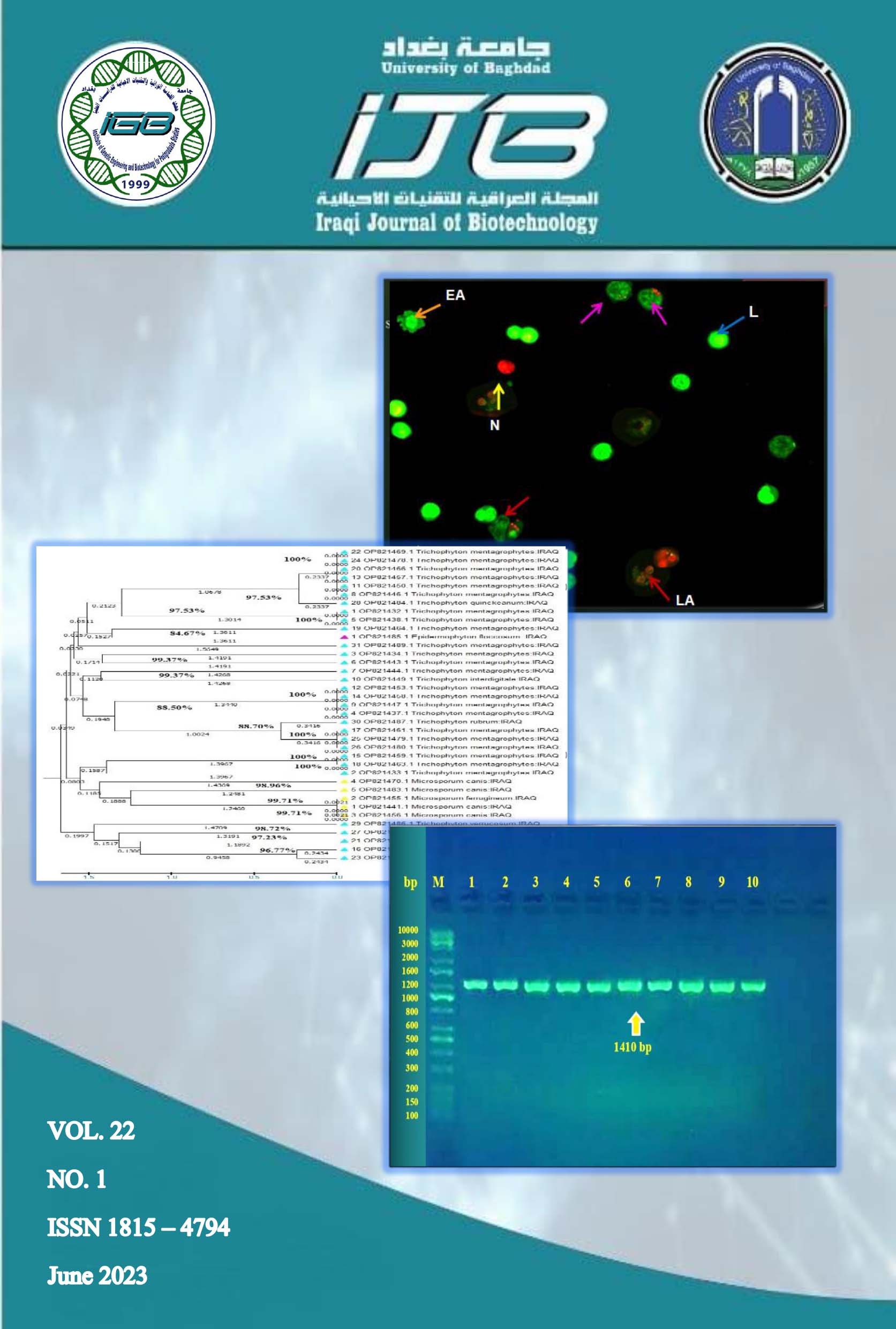Evaluation of Gene Expression of some Toll-like Receptors Genes among Iraqi Meningitis
Abstract
Meningitis is an important infectious disease with a high morbidity and mortality rate. The present study characterized the Toll-Like (receptors) (TLRs) role in the host immune response and as markers for bacterial and viral meningitis. The aim of this study evaluate the gene expression of Toll-like receptors TLR2, TLR3, TLR 4, TLR 7 and TLR9 genes the delta delta ct method among patients with meningitis infectious pathogens (Streptococcus pneumoniae, Staphylococcus spp, Herpes simplex virus1 and Epstein-Barr virus) and compared the results with the results of healthy control. The results of gene expression of TLR2 revealed that this receptor expression was increased among blood cells for infected patients with Staphylococcus spp (4.8 fold) in comparison with the control. The results of gene expression of TLR3 demonstrated that this receptor was increased among meningitis patients with Herpes simplex virus1 (5.1 fold). The receptor TLR4 was increased among patients with S. pneumoniae (6.2 fold). Also it was found that the gene expression of TLR7 and TLR9 was increased among patients through Epstein-Barr virus (6.2 fold), and Herpes simplex virus1 (4 fold), respectively. The findings of the study revealed that the mRNA expression levels of TLRs 2 and 4 had increased in infected patients with bacteria, while in the patients infected with viruses, there was increasing in the levels of TLRs 3, 7 and 9. Also thelevels of TLR2 were exhibited low increasing among patients with viruses. In conclusion, TLRs perform an important function in immune system response. to viral and bacterial meningitis and by way of genetic markers for identifying high-risk patients with meningitis and perhaps leading to novel treatment methods.


